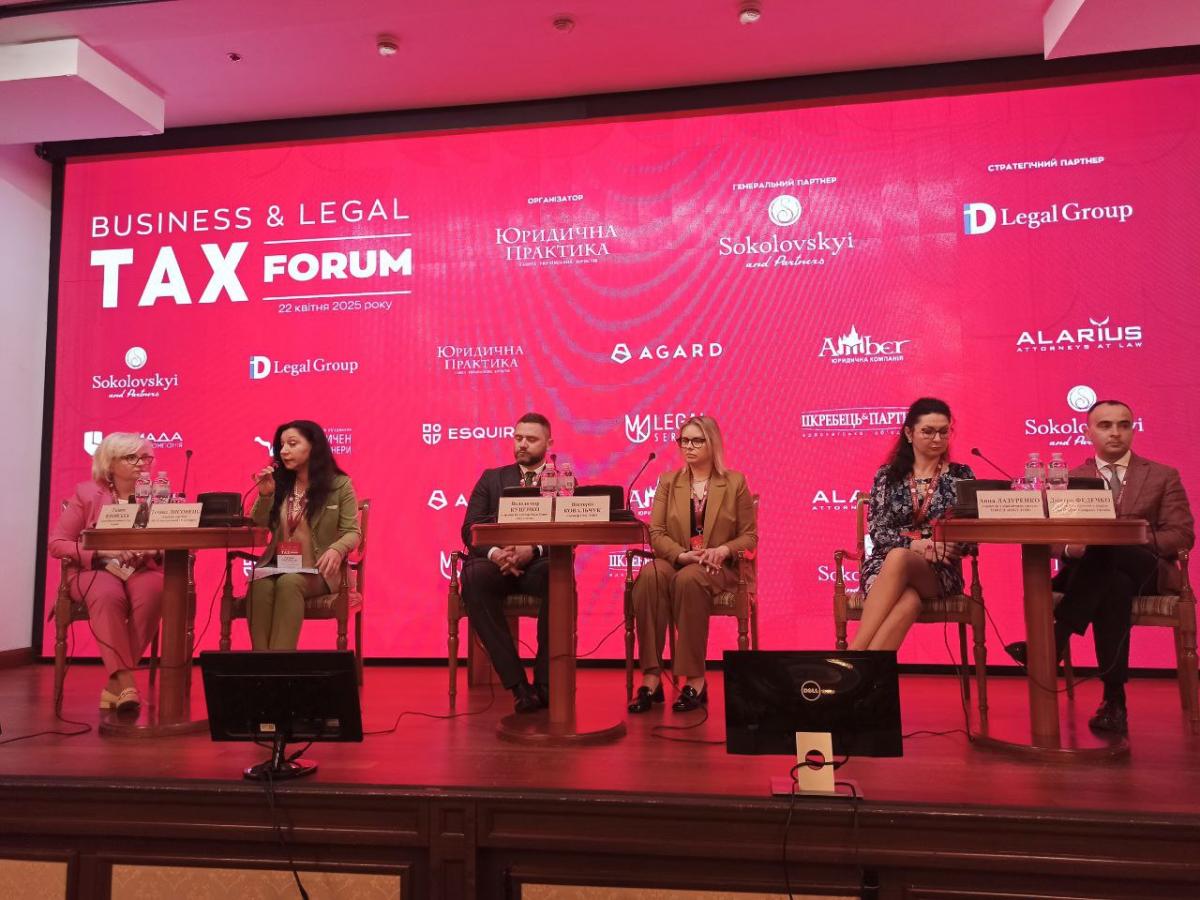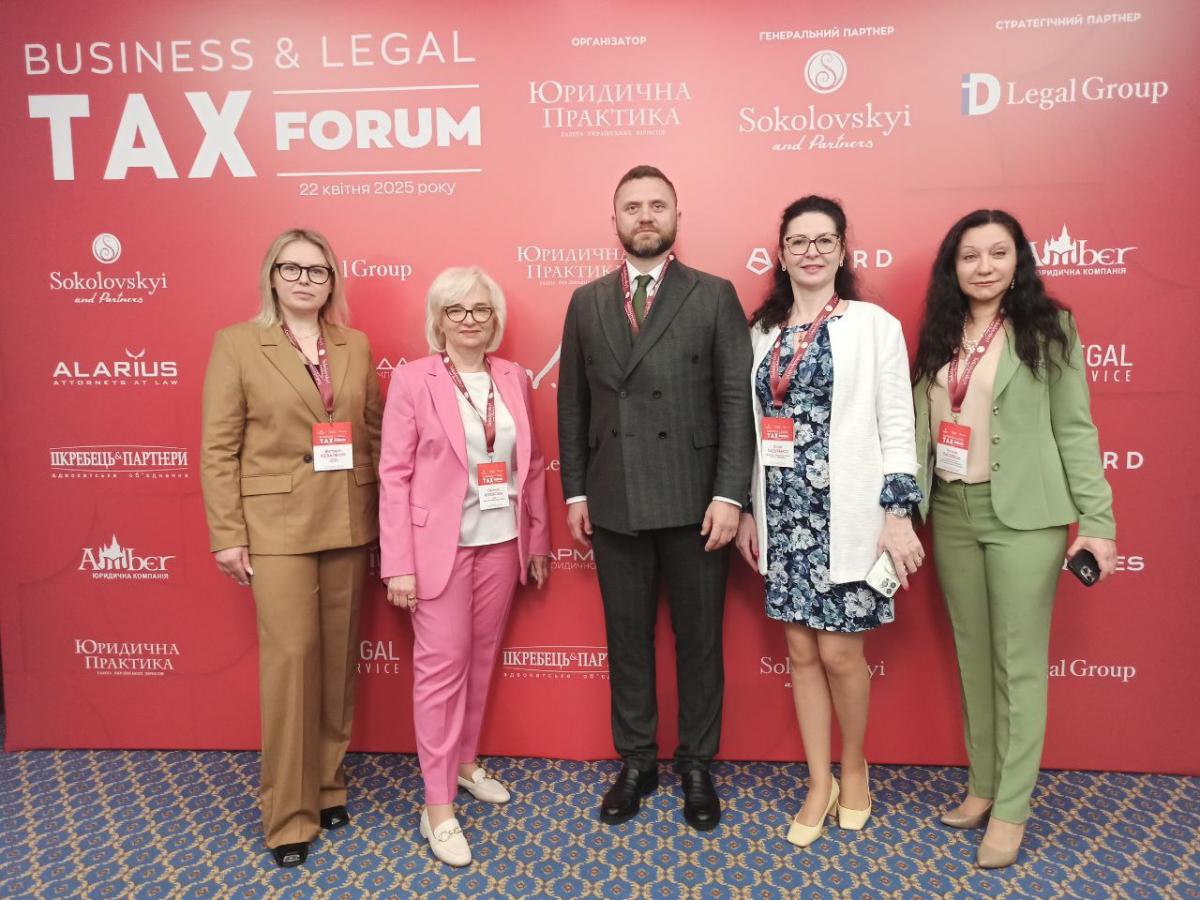22 April, 2025
The event, which took place on 22 April 2025, was organised by the “Yurydychna Praktyka” newspaper. The event was attended by representatives of the Parliament, the Ministry of Finance of Ukraine, the Business Ombudsman Council, the State Tax Service of Ukraine, judges of the Supreme Court, as well as business representatives and partners of leading law firms.
During the Tax Challenges session, Galyna Yurovska delivered a presentation on “Legal certainty and the importance of stability in tax relations in the context of the CCU decision No. 3-p(II)/2025 dated 21 January 2025”.
The judge focused on the key aspects of the decision in the case on the entry into force of the law on the establishment of taxes and fees under the constitutional complaint of Geomax-Resource LLC (the Company). She noted that the subject of constitutional control in this case was a separate provision of the Tax Code in the wording of the Law of Ukraine ‘On Amendments to the Tax Code of Ukraine and Certain Legislative Acts of Ukraine on Tax Reform’ No. 71-VII, dated 28.12.2014, which had ceased to be effective but continued to apply to legal relations arising under its force. In this case, the Court concluded that the disputed provision of the Tax Code as amended by the said law was unconstitutional.
Galyna Yurovska noted that this law was adopted on 28 December 2014, published on 31 December 2014, and came into force on 1 January 2015, i.e. the day following the day of its publication. “Accordingly, the disputed provision of the Tax Code as amended by the said law came into force and produced legal consequences the day after the day of publication of the legislative act, namely with the beginning of the budget period - 1 January 2015 (in fact, immediately),” the judge stressed.
According to her, by establishing the excise tax on the sale of fuel by business entities from 1 January 2015, the legislator did not take into account the principle of stability of the tax rate, the need for a certain transitional period (vacatio legis - the time from the moment of official promulgation of the law until its entry into force), which would have provided the parties to legal relations with reasonable time and opportunity to adapt to new circumstances, as well as the consequences that may arise for the taxpayer due to the lack of opportunity to prepare for the entry into force of such legislative changes and comprehensive regulatory framework, thus violating the rule of law.
“The company did not have enough time to adapt to the changes in the system of legal relations caused by the adoption of the law, which led to a violation of its legitimate expectations and non-compliance with the principle of legal certainty,” the judge stressed. She also noted that the Verkhovna Rada of Ukraine did not establish a sufficient transition period (a reasonable time period), thus depriving taxpayers of any tax planning. The judge emphasised the need to build a legal system based on predictability, stability and legitimate expectations of legal relations.
In her speech, Galyna Yurovska cited the positions of the President of Ukraine, the Chairman of the Verkhovna Rada of Ukraine, the Prime Minister of Ukraine in this case, certain positions of the European Court of Human Rights and other international institutions, and highlighted the legal positions formed in this decision, in particular, regarding legal certainty as a component of the rule of law.




